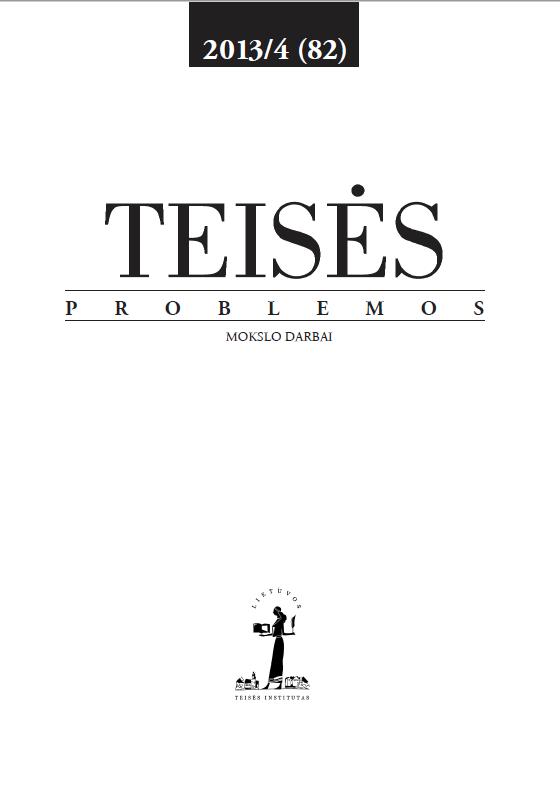Tyčios turinio reikšmė skiriant bausmes už nužudymus Lietuvos teismų praktikoje
Significance of Intent in Sentencing for Homicides in the Jurisprudence of Lithuanian Courts
Author(s): Algimantas ČepasSubject(s): Law, Constitution, Jurisprudence, Criminal Law
Published by: Lietuvos teisės institutas
Summary/Abstract: The article presents results of the research project carried out by the Law Institute of Lithuania and Vilnius University and supported by the Research Council of Lithuania „Homicide in Lithuania: Criminological Research“. The project encompassed analysis of 910 judgements passed by the Lithuanian courts of the first instance in homicide cases. The judgements have been analysed from different angles, data was collected on socio-demographic characteris¬tics of culprits and victims, circumstances of the crimes committed, as well as on penalties imposed upon the sentenced persons. The article deals with the latter data only, i.e. provides analysis of the penalties imposed taking into account the forms of guilt established in the cases analysed as the criteria for evaluation of the jurisprudence in Lithuania.The data reveals that the median penalty of deprivation of liberty imposed for unquali¬fied homicides is 9 years 3 months and 9 days; the median penalty of deprivation of liberty imposed for qualified homicides is 11 ears 8 months and 21 days (10 persons have been sentenced to life imprisonment for qualified homicides, while 2 persons charged for quali¬fied homicides have been sentenced to penalties not involving deprivation of liberty). The common median penalty imposed for both qualified and unqualified homicides is 10 years 7 months and 21 days.Lithuanian courts seldom state whether homicides are committed with or without premeditation, however premeditation can be envisaged in the most of cases ended with imposition of life imprisonment. However certain cases analysed reveal that premeditation is not always taken into account by courts when deciding upon penalties to be imposed. The author proposes establishment of premeditation as an aggravating circumstance in the Penal Code of Lithuania.The courts are not inclined to acknowledge that homicides are committed due to a sud¬den passion. Although the Penal Code of Lithuania establishes a specific privileged form of homicide “Murder in a State of Passion”, only 2 homicides dealt with by the courts in the years 2005-2012 have been acknowledged to be of the latter form. However the research indicated 70 persons sentenced for homicides during these years whose penal liability was mitigated by the fact that commission of the act has been influenced by a provoking behaviour of the victim.The courts tend to impose harsher penalties for homicides committed with a predefined intent than to homicides committed without predefined intent. The median penalty imposed for the homicides committed without predefined intent is 10 years 3 months and 5 days; the median penalty imposed for the homicides committed with predefined intent is 11 years 2 months and 10 days.A special attention is drawn to differences between penalties imposed for homicides committed with direct and indirect intent. The median penalty imposed for the homicides committed with direct intent is 11 years 7 months and 11 days; the median penalty imposed for the homicides committed with indirect intent is 10 years and 25 days.The author expresses his opinion that the jurisprudence of the Supreme Court of Lithu¬ania leads to an establishment of an almost incontrovertible presumption of indirect intent vis-à-vis negligent guilt. Such a practice is being formed by decisions of the Supreme Court of Lithuania acknowledging that any violence against the victim presupposes understanding by the culprit that the death of the victim is a possible result of his or her act. The Supreme Court of Lithuania also acknowledges that it is sufficient that the culprit could and ought to have anticipated the death of the victim as a result of his or her acts without taking into account whether such a result has been actually foreseen or whether the culprit recklessly expected to avoid such a result.
Journal: Teisės problemos
- Issue Year: 2013
- Issue No: 82 (4)
- Page Range: 40-64
- Page Count: 25
- Language: Lithuanian

